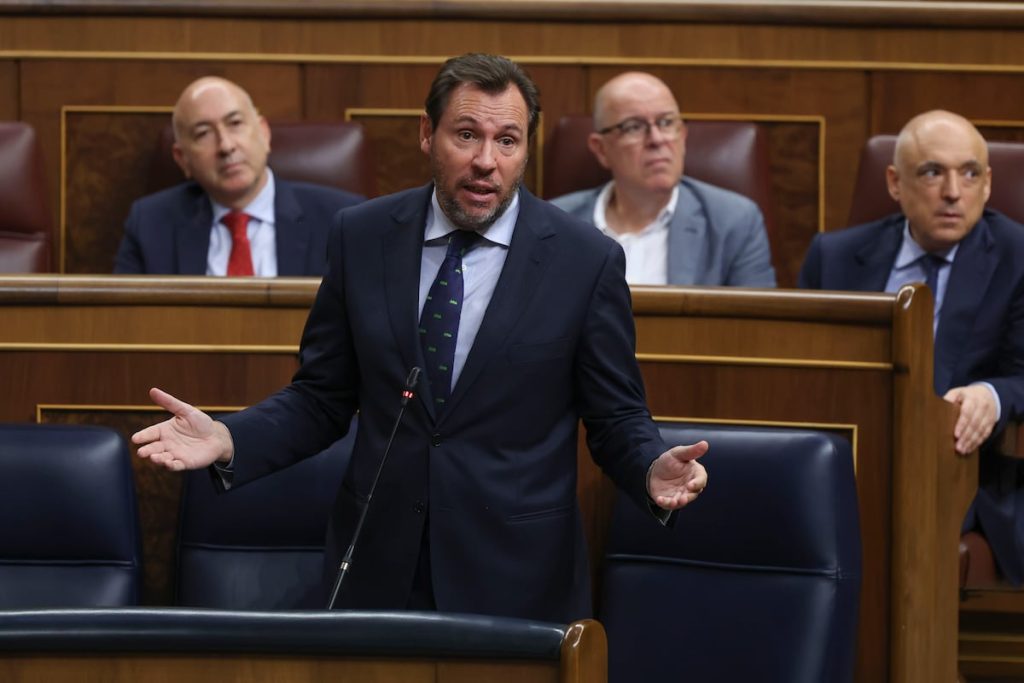The AP-9 is not just a nuclear highway. It is the vein that articulates and structures Galicia, allowing the daily mobility of most of its citizens, linking its five major cities, three airports, and five state ports, and is also a key point of contention in any conversation in the region, beyond ideology or party lines. The Spanish Congress ratified on Wednesday, with a large majority, a motion by the BNG deputy to proceed with the rescue of this infrastructure from private hands to public hands, following the unanimous approval by the Galician Parliament on September 25 and the long-standing demands of most parties, except Vox. The Government does not oppose, but is cautious. Minister Oscar Puente on Wednesday requested discretion and expressed openness to finding solutions. The debate highlighted that the decision is complex and costly, as both the PSOE and the PP in Galicia and Madrid have failed to fulfill their promises to eliminate the most expensive tolls in Spain for decades.
The AP-9, spanning 220 kilometers, connects the Atlantic corridor of Galicia from the Ferrol region to Vigo, with approximately 61,500 daily users, playing an essential role in daily activities. However, it is expensive and seemed unlikely that tolls, such as 7.95 euros from Santiago to A Coruña or 11.45 to connect Santiago with Vigo, would ever end. In 2024, tolls even increased by 6.55%. In the Congress debate, Minister of Transport Oscar Puente, who has been in office for just a year, inherited ongoing criticisms from various spokespeople, especially from the BNG deputy Néstor Rego, a government ally, on the situation of the highway for years. Puente initially attributed the lack of action to the 2000 approval by the Government of José María Aznar for the controversial extension and privatization of the concession until 2048. He then highlighted the view that the road is part of the National Road Network of General Interest due to its structural peculiarities, making a transfer to the Xunta de Galicia seem “tremendously difficult”.
The debate also reflected a change in the PP’s stance towards the unanimous demand in Galicia. PP deputy Celso Delgado, aware of Puente’s controversials, sought a constructive dialogue to push for the rescue, aligning with a recent study commissioned by the Xunta estimating the cost at 904.7 million euros. The BNG motion was approved in parts, but this parliamentary defeat does not guarantee government action. Delgado subtly acknowledged errors by the PP and previous governments in not advocating for the highway transfer, while also pointing out historical actions by the PSOE. The debate included accusations of corruption, with different parties highlighting past decisions that contributed to the current situation.
Vox asserted opposition to decentralization and road transfers, contrasting with a proposal by Sumar emphasizing the benefits of rescuing the highway for public funds. Minister Puente defended current initiatives and urged caution in discussing rescue costs, emphasizing the uncertainty of future scenarios regarding potential EU rejection of the 2000 extension. The session concluded with a motion on the rail network, which the PP successfully passed, furthering their recent challenges. The political climate revealed evolving positions and historical responsibilities, showcasing the complexity and significance of the AP-9 issue in Galicia’s infrastructure landscape. Discussions surrounding the highway’s future remain uncertain, highlighting the intricate interplay between political interests and public demands.















